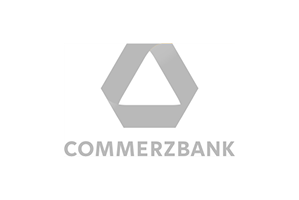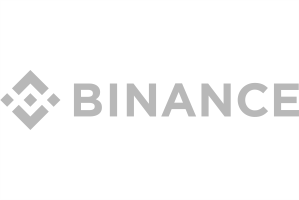Slovakia is a truly attractive landscape for starting a cryptocurrency business. The country combines a cost-effective business organization, a competitive tax structure, and unrivaled productivity, making obtaining a Slovakia crypto license more interesting. As a special place in Central and Eastern Europe, it is complemented by a robust anti-money laundering and anti-terrorist financing system. In turn, the Slovak Financial Intelligence Agency exercises strict supervision over cryptocurrency transactions.
The National Bank of Slovakia (NBS) is responsible for overseeing financial market stability and supervising participants. Currently, it does not issue licenses to cryptocurrency providers. However, it must recognize the existence of various crypto assets, granting them the status of digital or electronic coins, tokens, or assets based on blockchain technology, not forgetting mining.
Cryptocurrency Regulations and Compliance in Slovakia
Slovakia‘s regulatory landscape for cryptocurrency, particularly concerning the Slovakia cryptocurrency exchange license, intertwines national and EU laws, emphasizing anti-money laundering (AML) and counter-financing of terrorism (CFT) frameworks. The structure includes:
Regulatory Overview
- The National Bank of Slovakia (NBS) does not specifically define crypto–assets unless covered by existing financial market frameworks.
- Relies on a blend of EU and national legislation for classifying and regulating crypto–assets.
EU Legislative Impact
- When crypto–assets are deemed financial instruments, several EU laws, including MiFID II and Prospectus Regulation, come into play.
- The incorporation of AMLD4, AMLD5, and AMLD6 into Slovak law clarifies the definitions and regulatory requirements for crypto activities.
Compliance and Risk Management
- Mandate the implementation of stringent AML/CFT measures.
- Companies must evaluate the complexity of their crypto operations and establish tailored risk management policies.
- Ensuring personnel are well-versed in AML/CFT, data protection laws, and client identification processes.
Operational and Reporting Protocols
- Enforce comprehensive customer due diligence and Know Your Customer (KYC) procedures throughout the business relationship.
Continuous monitoring of transactions and mandatory reporting of suspicious activities in line with the Slovak AML Act.
Regulation of Slovakia Crypto License
There are two variations of the Slovakian crypto license. It is possible to get a license for rendering e-wallet services and a license for cryptocurrency exchange operations. For both cases, it is necessary to establish a local crypto company. The minimal required chartered capital for a company should be at least EUR 5 000. It is not necessary to deposit such an amount at the moment of the company’s registration. A local crypto company should have a director who is a resident of the EU or Slovakia. This entity is obliged to have a realistic business plan also.
Minimally, in order to register a local company, it is necessary to gather and form this package of documents:
- Passport of beneficiaries and directors of a company.
- Residency confirmation (e.g., confirmation from state authorities on the residency registration or utility bills).
- Three desired options of a company’s name.
- Power of attorney.
- Certificate on the absence of criminal records.
- Secondary education diploma. If a document has been issued abroad, a holder should previously pass the nostrification procedure (may take around 8-12 weeks).
The process of company formation may take around 3-4 weeks and the procedure of getting a Slovakia crypto license may take around 4-6 weeks. Also, 2 weeks minimally will be required to open a bank account. All crypto users have to be identified later. Operators have to implement measures to secure their personal details and ensure the prevention of money laundering and terrorism financing.
Varieties of Cryptocurrency Licenses in Slovakia
Cryptocurrency Exchange Intermediation:
This Slovakia cryptocurrency license permits companies to facilitate the exchange of digital currency for fiat money and vice versa. It also covers crypto-to-crypto exchanges, typically involving a service fee.
Cryptocurrency Fund Maintenance and Storage:
Tailored for firms that offer wallet services for cryptocurrency storage. This includes the generation and preservation of encrypted client keys.
Cryptocurrency Asset Categories and Licensing in Slovakia
In Slovakia, cryptocurrency assets, known under the umbrella of virtual assets, are categorized into several types, each serving distinct purposes. These include:
Virtual Assets
These tokens function as digital money, facilitating transactions, payments, and currency exchanges. They stand on their blockchain platforms, serving as tradeable assets or utilities for investment or economic activities.
Investment Tokens
Functioning similarly to traditional securities, these digital securities are recorded on a blockchain, offering ownership rights and potential dividends, much like company shares.
Utility Tokens
Created for specific business platforms, these tokens operate like service coins, often used in exchange for company services or as in-game currency. Not designed as investments, they resemble coupons for product or service access. An illustration of this is Filecon, which raised significant funds for cloud access tokens.
Advantages of Obtaining a Crypto License in Slovakia
Slovakia offers a conducive environment for cryptocurrency exchanges, highlighted by:
- There are no citizenship mandates, capital or income movement limitations, or currency control restrictions.
- Foreign staff employment is unrestricted.
- The nation is known for its stable and reputable political landscape.
Entities can secure a tax residency certificate, with standard tax at 22%. However, strategic use of an agent scheme and meticulous accounting can drastically reduce tax rates to as low as 0.5%.
Obtaining Crypto Licenses in Slovakia and El Salvador
To become a holder of the Slovakia crypto exchange license, you need to develop a detailed business plan with a relatively low amount of minimum capital. The process itself involves proving the good reputation of company executives, as well as proof of residency, and so on.
In El Salvador, attention is paid to maintaining a clear organizational structure and demonstrating financial transparency. As in other jurisdictions, it is also important to comply with strict anti-money laundering and anti-terrorist financing standards.
In short, both countries require careful documentation and compliance with regulations. Of course, they have some inherent differences in their national approaches and views on cryptocurrencies. For example, El Salvador was the first country to recognize Bitcoin as a legal currency.
Prerequisites for a Slovakia Cryptocurrency License
Entities in the crypto sector aiming for a Slovakian crypto license must adhere to these stipulations:
- Submission of a comprehensive business plan.
- Maintenance of a minimum of €5,000 in authorized capital.
- Provision of legalized copies of documents for all key individuals.
- Evidence of unblemished reputation for owners and directors.
- Proof of residence through official documentation.
- Proposal of three distinct company names.
- Establishment of a dedicated corporate bank account.
Steps for Acquiring a Slovakia Cryptocurrency License
Securing a cryptocurrency license in Slovakia involves a structured process divided into stages:
- Initial Documentation and Assessment
- Gathering KYC details and business outlines.
- Formulating a Power of Attorney.
- Conducting an initial project evaluation.
- Company Formation and Legal Setup
- Executing company establishment via a notary.
- Translating Power of Attorney into Slovak.
- Registering the business in the commercial registry.
- Pre-Application Preparations
- Developing AML/KYC policies tailored to the crypto business.
- Recruiting and training a Local Director/AML officer.
- Finalizing application submission and initiating FIU registration.
- Guiding through regulatory discussions and offering comprehensive support up to registration completion.
- Corporate Account Establishment for Crypto Activities
- Gathering and preparing necessary corporate documents for account opening.
Taxation Overview in Slovakia
In Slovakia, the taxation landscape for cryptocurrencies, as defined in the laws adopted in March 2018, mandates that profits from cryptocurrency transactions are taxable. Key points for entities holding a Slovakia cryptocurrency license include:
- Profits from crypto transactions, including mining, sales, and exchange services, are subject to tax.
- Cryptocurrencies are classified as short-term financial assets, distinct from traditional currency. Losses cannot be deferred to future accounting periods, and crypto assets are valued at market price during transactions.
Tax Rates:
- For individuals, earnings below €38,000 are taxed at 19%, with the rate increasing to 25% for earnings above this threshold.
- Legal entities face a 15% tax on income up to €49,790, which escalates to 21% for higher earnings.
Tax Incentives: The Slovak tax system offers benefits, such as a 200% deduction on R&D project costs and provisions to avoid double taxation through 70 international agreements, safeguarding residents from double taxation on foreign profits.
Reporting and Auditing for Crypto Businesses in Slovakia
The Accounting Act in Slovakia mandates certain crypto companies to perform audits, especially if they meet two of the following conditions:
- Owning assets over EUR 1 million.
- Generating net sales above EUR 2 million.
- Employing more than 30 staff.
Revisions to the Accounting Act in 2018 set specific rules for virtual currencies, requiring their conversion to euros at the end of the accounting period and determining their ‘real value’ based on the market price on valuation day. This value must consistently derive from the same recognized virtual currency market throughout the fiscal year for companies seeking to obtain cryptolicense in Slovakia.
FAQ
What hurdles might one encounter when securing a Slovakia cryptocurrency license?
Although Slovakia doesn’t outright ban cryptocurrencies, it enforces strict regulations on crypto–related activities monitored by the Financial Intelligence Unit. This rigorous regulatory environment means that any breaches of local laws can lead to severe repercussions, including the suspension or shutdown of businesses previously seen in the crypto sector.
Can a non-resident serve as a company director for a crypto business in Slovakia?
Yes, a non-resident can become a director of a crypto business in Slovakia. However, the individual is required to be a resident of an EU member state to qualify for this role.
Are crypto businesses in Slovakia subject to audits?
Yes, in Slovakia, crypto businesses undergo rigorous regulation, including full corporate disclosure, to enhance security measures and regulatory oversight. This means that all crypto companies are routinely subjected to audits, checks, and verifications.
Is the usage of cryptocurrency legal in Slovakia?
Cryptocurrency in Slovakia is recognized as a digital form of savings. Although not issued by the central bank and not considered legal tender, cryptocurrencies are permissible for use in transactions, storage, or trading by legal entities or individuals.








